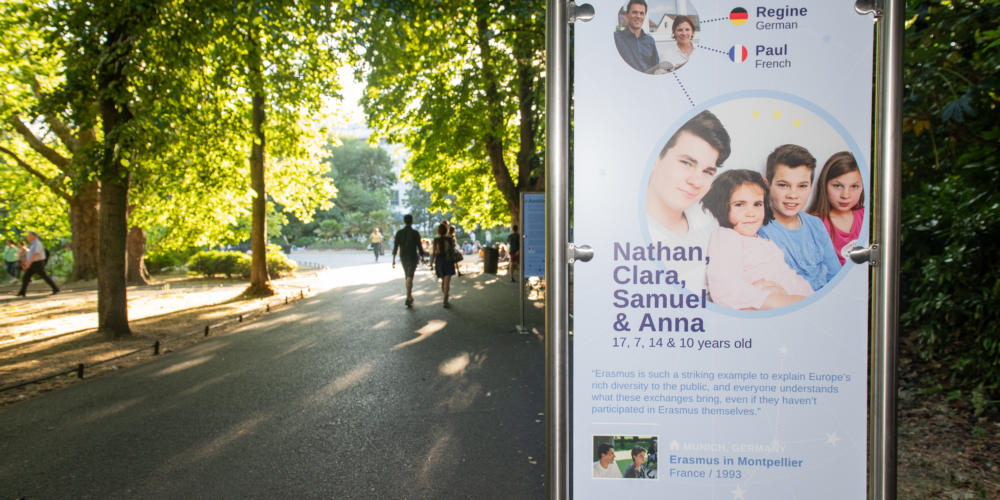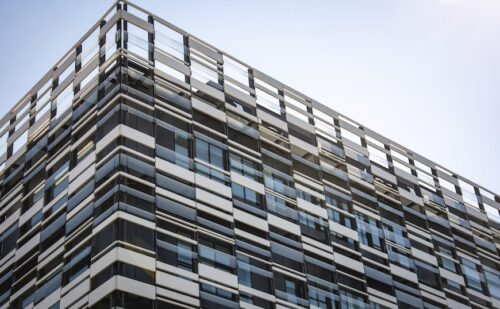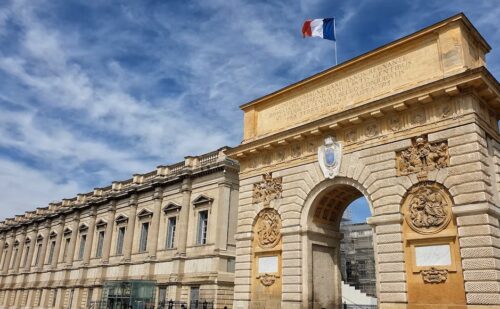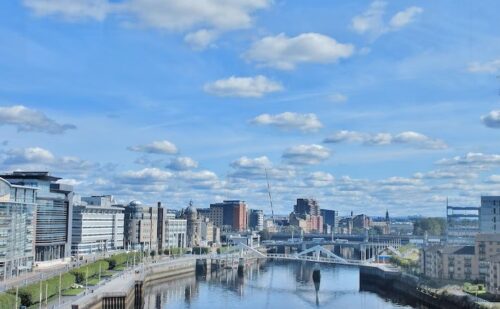
#ErasmusDays 2018 brought together 39 countries with more than 1,435 events.
Gerry O'Sullivan
Posted: 31 December, 2018
The ErasmusDays, organised for the second year in October 2018, brought together 39 countries with more than 1435 events in Europe and beyond. A report, produced by the French National Agency for Education and Training, on #ErasmusDays Coverage and Impact is now available here. For more information, visit the erasmusdays.eu website.
Ireland was one of the countries that took part. The National Agency worked with the Embassy of France with the support of the Representation of the European Commission in Ireland and the embassies of Belgium, Denmark, Finland, Germany, Great Britain, Hungary, Italy, the Netherlands, Norway, Poland, Spain and Switzerland to present the exhibition “European Union[s],” introducing 17 Franco-European families. The exhibition was staged in St. Stephen’s Green (shown in photograph) in Dublin; at the School of Art and Design at Limerick Institute of Technology and at the Institute of Technology in Sligo.
The University of Limerick hosted an event to showcasing the cultural dimension of Erasmus+ and International Credit Mobility as part of its contribution to the European Year of Cultural Heritage. While DIT (Dublin Institute of Technology) Erasmus+ students were able to enjoy the historic town of Strokestown in Roscommon with various organised tours and a festival of traditional Irish music.


